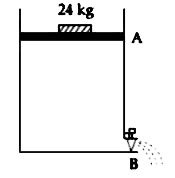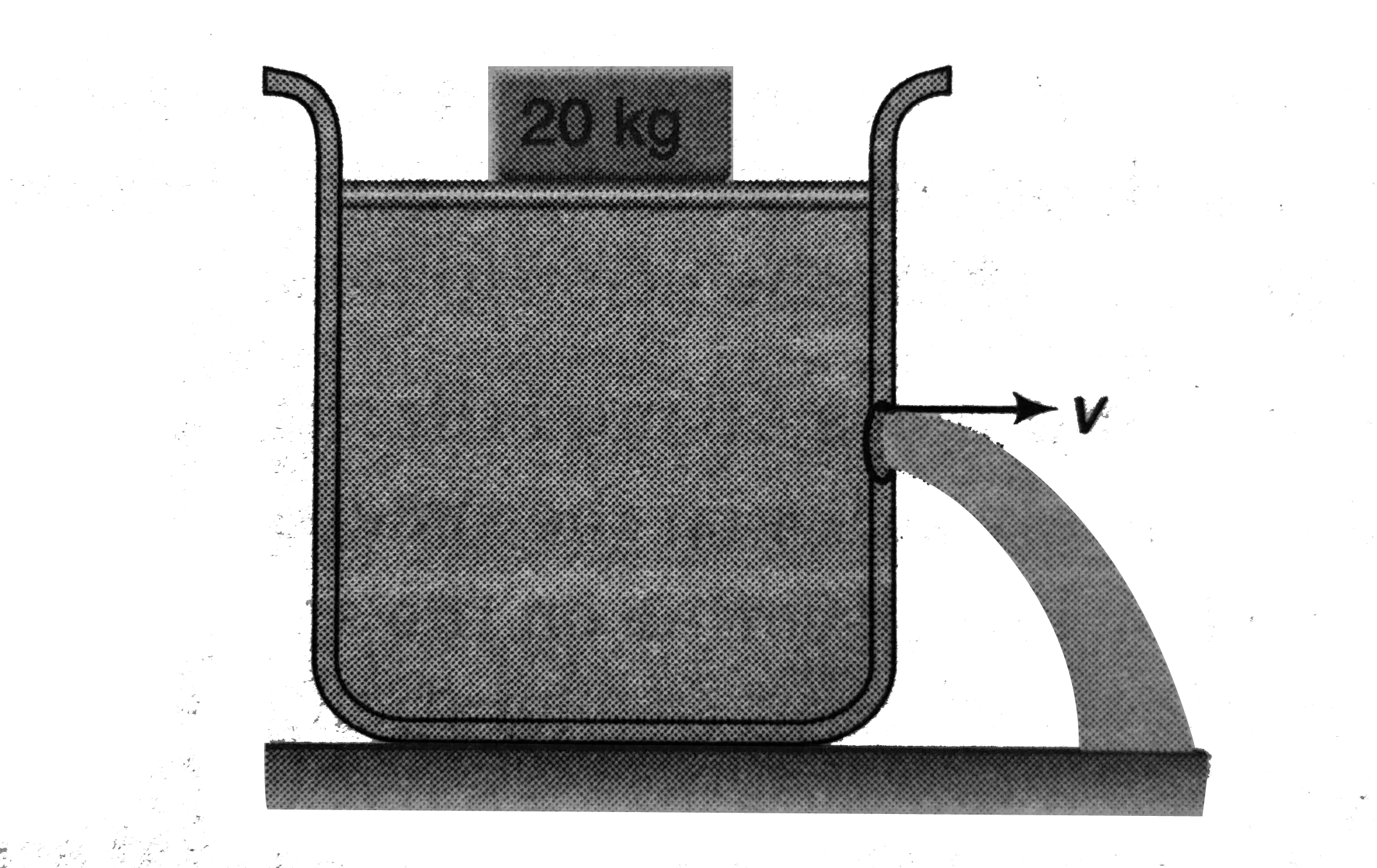A small hole of area of cross-section 2 mm2 present near the bottom of a fully filled open tank of height 2. Taking g=10m/s2, the rate of flow of water through the open hole would be nearly
8.9×10−6m3/s
2.23×10−6m3/s
6.4×10−6m3/s
12.6×10−6m3/s
The correct Answer is:D
Step by step video & text solution for A small hole of area of cross-section 2 mm^(2) present near the bottom of a fully filled open tank of height 2. Taking g=10m//s^(2), the rate of flow of water through the open hole would be nearly by Physics experts to help you in doubts & scoring excellent marks in Class 14 exams.
Similar Questions
Water leaks out from an open tank through a hole of area 2mm2 in the bottom. Suppose water is filled up to a height of 80 cm and the area of cross section of the tankis 0.4m2. The pressure at the open surface and the hole are equal to the atmospheric pressure. Neglect the small velocity of the water near the open surface in the tank. a. Find the initial speed of water coming out of the hole. b. Findteh speed of water coming out when half of water has leaked out. c. Find the volume of water leaked out during a time interval dt after the height remained is h. Thus find the decrease in height dh in term of h and dt.
d. From the result of part c. find the time required for half of the water to leak out.View SolutionA hole of area 1mm2 opens near the bottm of a large- water storage tank, and a stream of water shoots from it. If the top of water in the tank is to be kept at 20 m above the point of leak , how much water in litres//s should be added to the reservoir tank to keep this level ? (g=10m/s2).
View Solution
Knowledge Check
- Question 1 - Select One
A small hole of area of cross-section 2 mm2 present near the bottom of a fully filled open tank of height 2. Taking g=10m/s2, the rate of flow of water through the open hole would be nearly
A12.6×10−6m3/sB8.9×10−6m3/sC2.23×10−6m3/sD6.4×10−6m3/s - Question 2 - Select One
The level of water in a tank is 5 m high. A hole of area of cross section 1 cm2 is made at the bottom of the tank. The rate of leakage of water for the hole in m3s−1 is (g=10ms−2)
A10−3B10−4C10D10−2 - Question 3 - Select One or More
There is a small hole near the botton of an open tank filled with liquid. The speed of the water ejected does not depend on
Aarea of the holeBdensity of the liquidCheight of the liquid from the holeDacceleration due to gravity
Consider a water tank as shown in the figre. It's cross-sectional area is 0.4m2. The tank has an opening B near the bottom whose cross-section area is 1cm2. A load of 24kg is applied on the water at the top when the height of the water level is 40 cm above the bottom, the velocity of water combing out the opening B is v ms−1. The value of v, to be nearest integer, is [Take value of g to be 10ms−2]
 View Solution
View SolutionA area of cross section of a large tank is 0.5m2. It has an opening near the bottom having area of cross section 1cm2. A load of 20 kg is applied on the water at the top. Find the velocity of the water coming out of the opening at the time when the height of water level is 50 cm above the bottom. Take g=10ms−2
View SolutionThere is a small hole at the bottom of tank filled with water. If total pressure at the bottom is 3atm(1atm=105Nm−2), then find the velocity of water flowing from hole.
View SolutionA long cylindrical tank of cross-sectional area 0.5m2 is filled with water. It has a small hole at a height 50cm from the bottom. A movable piston of cross-sectional area almost equal to 0.5m2 is fitted on the top of the tank such that it can slide in the tank freely. A load of 20kg is applied on the top of the water by piston, as shown in the figure. Calculate the speed of the water jet with which it hits the surface when piston is 1m above the bottom. (Ignore the mass of the piston)
 View Solution
View SolutionA cylindrical vessel open at the top is 20cm high and 10cm in diameter. A circular hole of cross-sectional area 1cm2 is cut at the centre of the bottom of the vessel. Water flows from a tube above it into the vessel at the rate of 102cm3/s. The height of water in the vessel under steady state is (Take g=10m/s2).
View Solution
